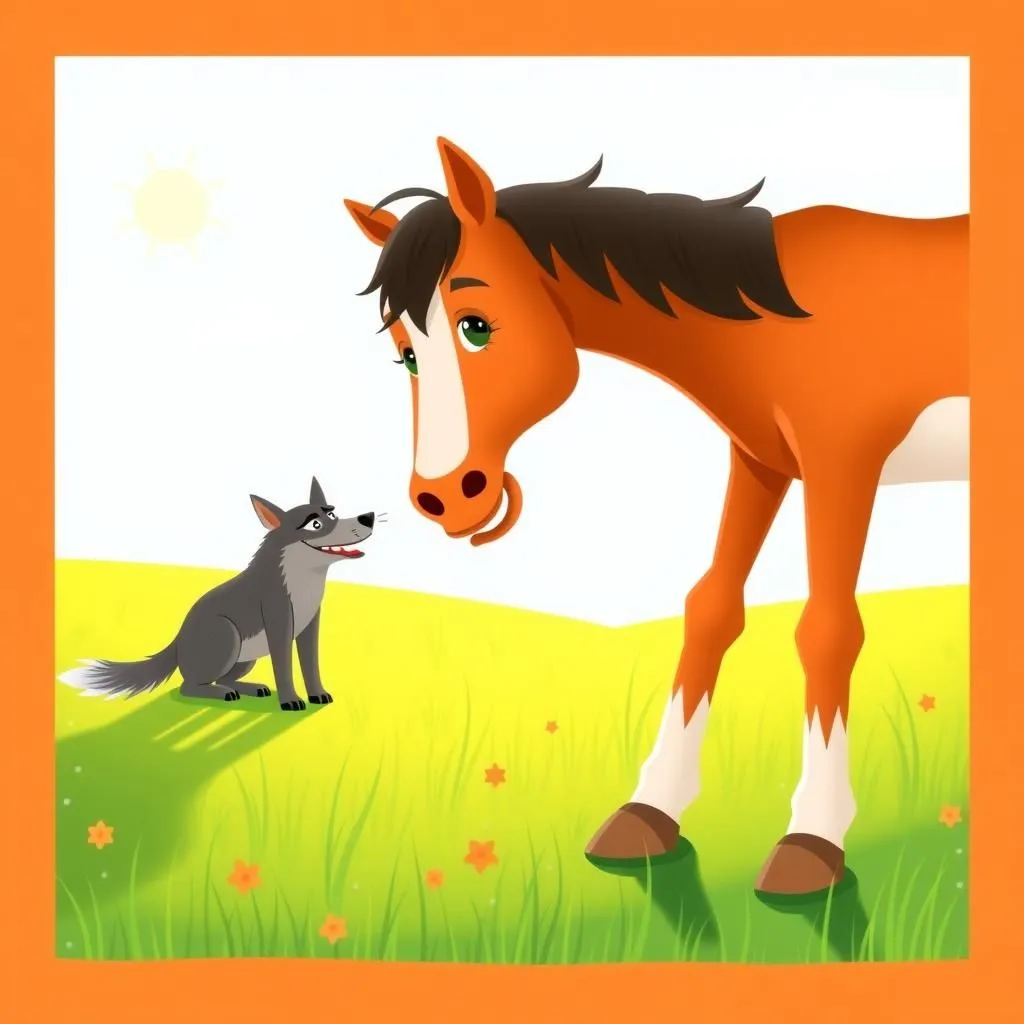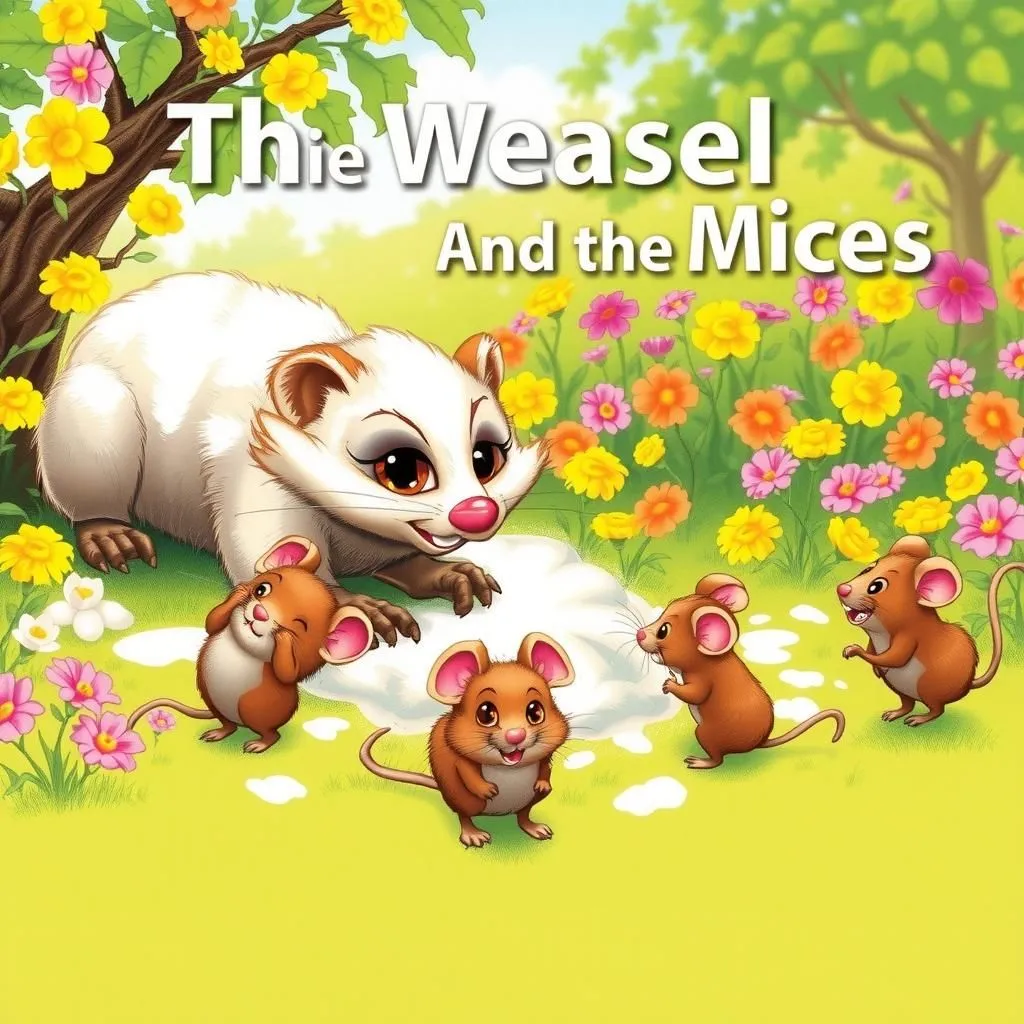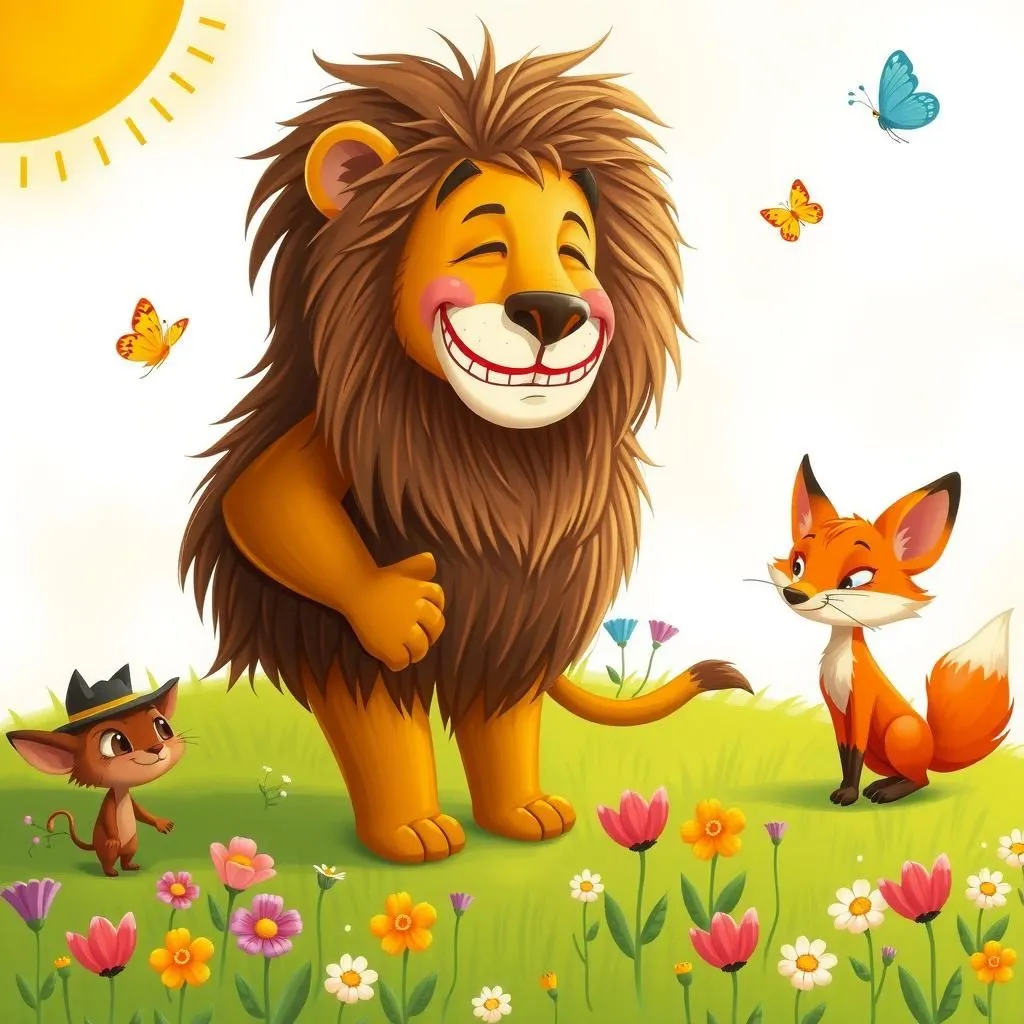
The Wolf and the Horse
In "The Wolf and the Horse," a cunning Wolf attempts to deceive a Horse by claiming to have left a field of untouched oats for him. However, the Horse sees through the ruse, pointing out that if oats were suitable for the Wolf, he would have eaten them himself. This famous fable illustrates a powerful moral about how individuals with a bad reputation often struggle to be trusted, even when they try to perform good deeds, highlighting the impact of storytelling with morals in our understanding of character and trust.


